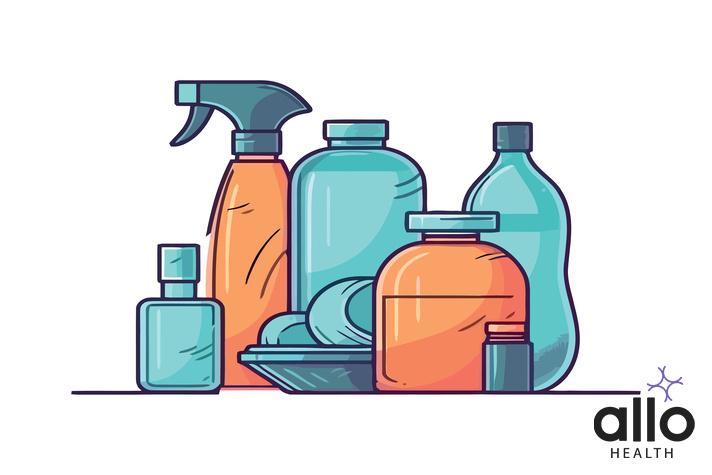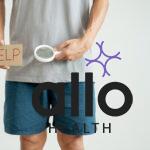Pubic Lice (Crabs) Effective Treatment Options

Allo Health is dedicated to personalized well-being, offering support and trusted information tailored to individual health goals. The platform emphasizes human-generated content, led by a distinguished medical team of experts, including physicians and sexual health specialists. Their commitment to credibility involves rigorous fact-checking, authoritative research, and continuous updates to ensure accurate, up-to-date information. Allo Health's unique approach goes beyond conventional platforms, providing expert-led insights and a continuous commitment to excellence, with user feedback playing a crucial role in shaping the platform's authoritative voice.

Dr Thanushree, has her MBBS from Kanachur Institute of Medical Sciences, Mangalore
Why This Was Upated?
Our experts continually monitor the health and wellness space, and we update our articles when new information became available.
Updated on 25 May, 2024
- Article was updated as part of our commitment to diversity, equity, and inclusion.
"The following blog article provides general information and insights on various topics. However, it is important to note that the information presented is not intended as professional advice in any specific field or area. The content of this blog is for general educational and informational purposes only.
Book consultation
The content should not be interpreted as endorsement, recommendation, or guarantee of any product, service, or information mentioned. Readers are solely responsible for the decisions and actions they take based on the information provided in this blog. It is essential to exercise individual judgment, critical thinking, and personal responsibility when applying or implementing any information or suggestions discussed in the blog."
Pubic lice, commonly referred to as “crabs,” can cause discomfort and itching in the pubic hair and genital area. Fortunately, there are several effective treatment options available to eradicate these tiny parasites and alleviate symptoms. In this article, we’ll explore the various treatments for pubic lice infestations and how to use them effectively.
Over-the-Counter Medications
- Topical Lotions or Creams: Over-the-counter lotions or creams containing permethrin or pyrethrin are commonly used to treat pubic lice infestations. These medications work by paralyzing and killing the lice and their eggs. It’s essential to follow the instructions carefully and thoroughly cover the affected area with the medication. Repeat applications may be necessary to ensure all lice and eggs are eradicated.
- Shampoos: Medicated shampoos containing pyrethrin or permethrin are also available for treating pubic lice infestations. These shampoos should be applied to the affected area and left on for a specified period before rinsing. Like lotions and creams, multiple applications may be required for complete eradication of lice and nits.
Prescription Medications
- Prescription-Strength Lotions or Creams: In cases of severe or persistent pubic lice infestations, healthcare providers may prescribe stronger topical medications, such as malathion (not FDA approved) or Lindane. These prescription-strength treatments are applied to the affected area and should be used according to the healthcare provider’s instructions.
- Oral Medications: In some cases, oral medications may be prescribed to treat pubic lice infestations. Oral medications, such as ivermectin, work systemically to kill lice throughout the body. These medications are typically reserved for cases that do not respond to topical treatments or when multiple body areas are affected.

Complementary Treatments
- Combing and Nit Removal: In addition to medicated treatments, combing the pubic hair with a fine-toothed comb can help remove dead lice and nits. Regular combing may be recommended to prevent reinfestation and ensure all lice and eggs are eliminated.
- Washing Clothing and Bedding: Infested clothing, bedding, and personal items should be washed in hot water and dried on high heat to kill any remaining lice or eggs. Vacuuming upholstered furniture and carpets can also help remove any lice or eggs that may have fallen off the body.
Follow-Up and Prevention
After completing treatment for pubic lice infestation, it’s essential to follow up with a healthcare provider to ensure the infestation has been eradicated successfully. Additionally, practicing good personal hygiene and avoiding close contact with infested individuals can help prevent reinfestation and the spread of pubic lice to others.
Pubic lice infestations can be effectively treated with over-the-counter or prescription medications, including topical lotions, creams, shampoos, and oral medications. Complementary treatments such as combing and washing clothing and bedding can help ensure all lice and eggs are eliminated. If you suspect you have pubic lice, consult a healthcare provider for diagnosis and appropriate treatment. Remember to follow the treatment instructions carefully and take preventive measures to avoid reinfestation and the spread of pubic lice to others.
Most Asked Questions
-
What are the treatment options for pubic lice (crabs)?
The primary treatment for pubic lice infestation involves using medicated lotions or shampoos that contain insecticides to kill the lice and their eggs. These products are available over the counter or by prescription and should be used according to the instructions provided.
-
How do medicated lotions and shampoos work to treat pubic lice infestation?
Medicated lotions and shampoos used to treat pubic lice infestation contain insecticides, such as permethrin or pyrethrins, that are toxic to lice and their eggs. These products paralyze and kill the lice on contact, while also disrupting the development of their eggs.
-
Are there any home remedies for treating pubic lice infestation?
While there are various home remedies and alternative treatments for pubic lice infestation, such as applying olive oil, mayonnaise, or tea tree oil to the affected area, these methods have not been proven to be effective. It's essential to use medicated lotions or shampoos specifically designed to treat lice infestations for the best results.
-
Should I treat pubic lice infestation in close contacts even if they don't have symptoms?
Yes, it's recommended to treat close contacts of individuals with pubic lice infestation, even if they don't have symptoms, to prevent the spread of lice and reinfestation. This typically involves using the same medicated lotions or shampoos on all affected individuals simultaneously.
-
How can I prevent reinfestation after treatment?
To prevent reinfestation after treatment for pubic lice, it's essential to thoroughly wash and dry all clothing, bedding, and towels that may have come into contact with the lice or their eggs on high heat. Avoid sharing personal items, such as clothing, towels, or bedding, with others, and practice safe sex to reduce the risk of transmission. Additionally, closely monitor for any signs of reinfestation and seek medical advice if symptoms recur.









































